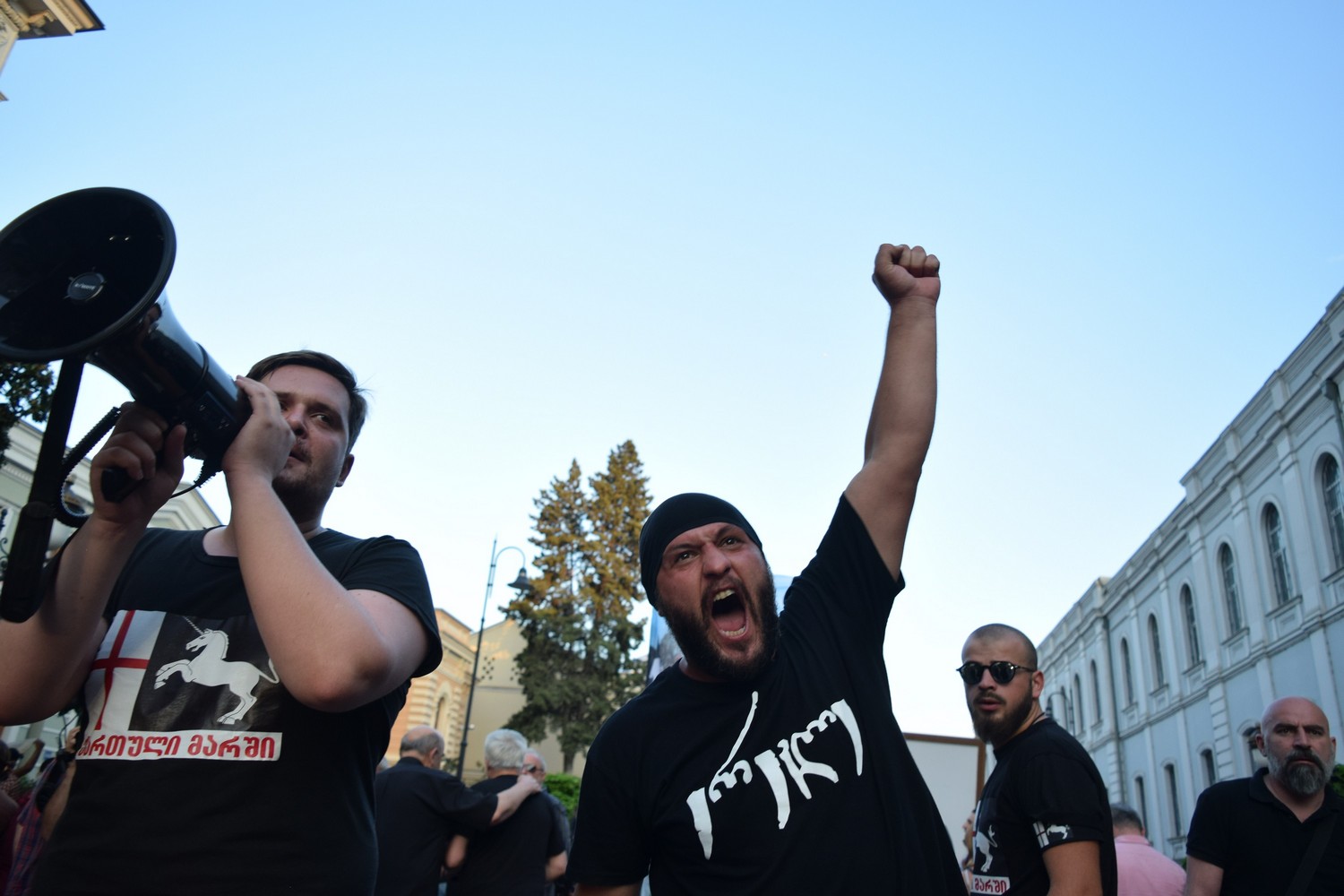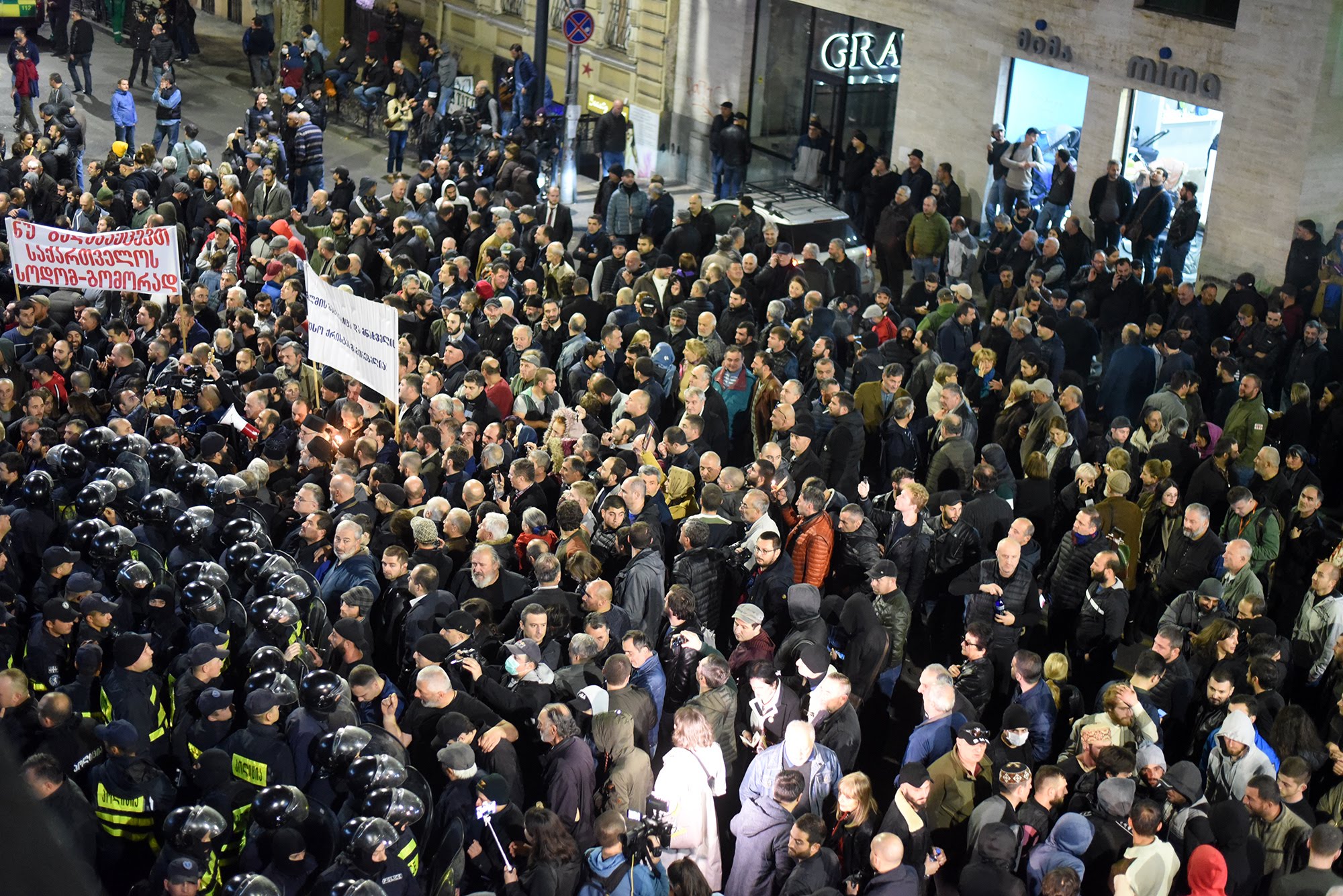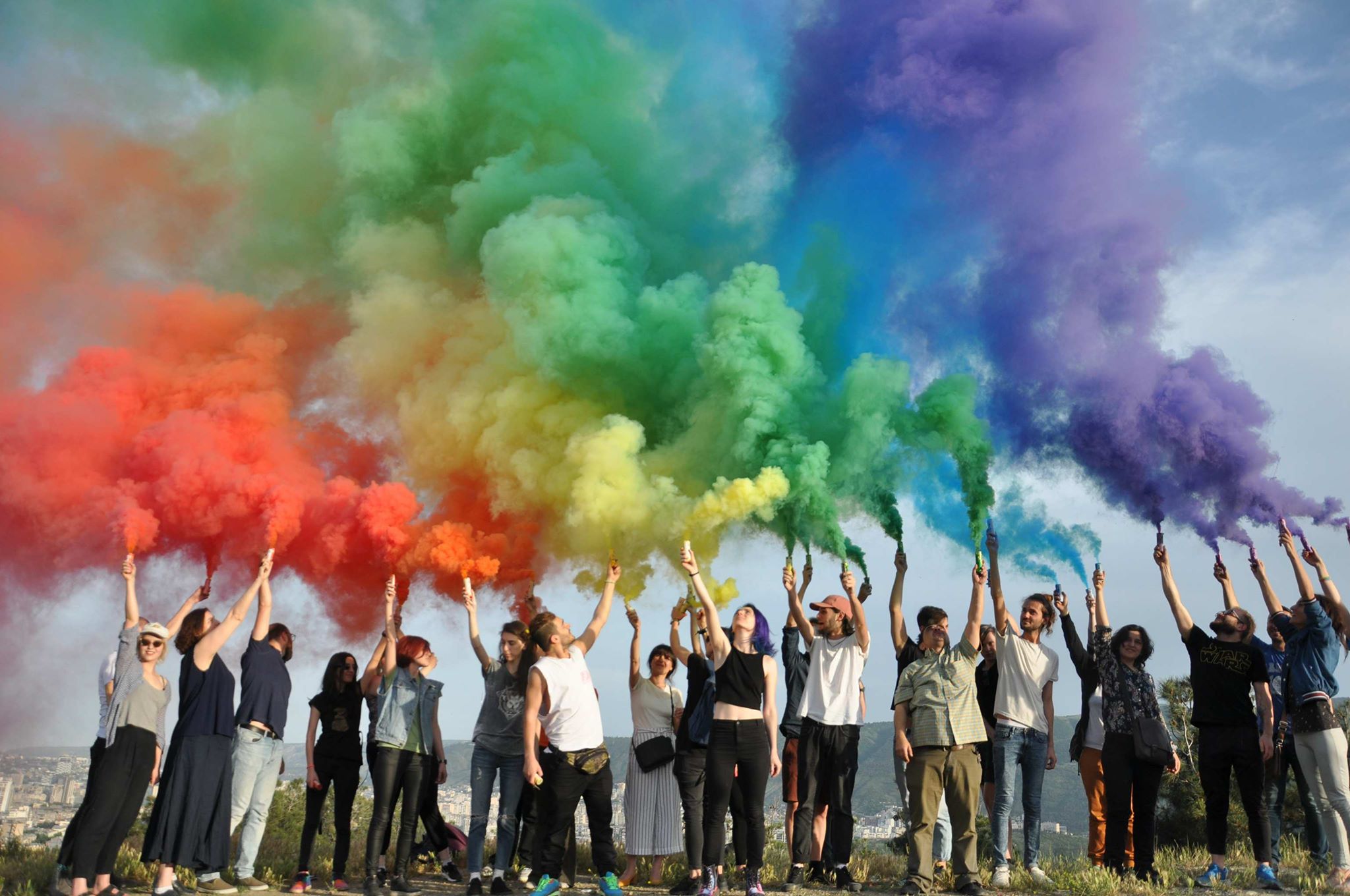
Ultraconservative group Georgian March plans to register as a political party and compete in October’s parliamentary elections, the group’s leader, Sandro Bregadze, has confirmed to OC Media.
The story was first reported on Tuesday by Georgian news site Prime Time.
Bregadze declined to comment on who he expected to join the party or whether they intended to ally with conservative opposition group the Alliance of Patriots, conservative campaigner Levan Vasadze, or others.
‘We are an independent group. However, we would only welcome unifying national groups and establishing a new national political centre’, Bregadze told OC Media. He also vowed to bring in ‘new faces’ to the movement.
He said they planned to register as a party next month.
Georgian March have emerged in recent years as one of the strongest voices in Georgia against immigration and queer rights, among other issues. Bregadze emerged as the group’s leader in 2017 but had become infamous for making controversial, often nativist and homophobic comments, far earlier.

In 2014 he was appointed Deputy State Minister on Diaspora Issues under the Georgian Dream-led government. He resigned in February 2016 citing disagreements with the party over ‘values’.
On Monday, Bregadze called on members of Georgian March to ‘fully mobilise’ to support Giorgi Jamdeliani, a Georgian Orthodox priest in the southern Marneuli Municipality who had objected to the renovation of a monument there.
The monument in question was a statue of Nariman Narimanov, a Tbilisi-born ethnic Azerbaijani Bolshevik.
Marneuli Municipality, part of Georgia’s Kvemo Kartli Region, is predominantly populated by ethnic Azerbaijanis.
While both Jamdeliani and later Bregvadze indicated their objections related to the glorification of a Soviet figure who was against Georgian independence, critics have consistently accused Bregadze of fanning xenophobic flames in Georgia.
What they march against
Georgian March have waged their campaigns predominantly through street demonstrations, including frequent ‘counter-rallies’ against pro-equality and liberal gatherings.
Last November, they sought to block the screening of Swedish-Georgian film And Then We Danced, which depicted a same-sex relationship between two Georgian dancers.

Eleven people were arrested and at least one filmgoer injured during the ensuing scuffles.
Several days later, Bregadze threatened to ‘oust’ Georgian Public Defender Nino Lomjaria from her from office. The Interior Ministry opened an investigation over the comments but no action followed.
Several members of the group were also investigated for making threats against Georgian footballer Guram Kashia.
In 2017, Kashia, then-captain of Dutch club Vitesse Arnhem and vice-captain of Georgia’s national team, faced backlash after wearing a rainbow armband in support of queer rights.
Following anti-Kashia campaigns, Bregadze’s supporters and other far-right groups went on to disrupt demonstrations to mark International Day Against Homophobia, Transphobia, and Biphobia on 17 May 2018 and the first Tbilisi Pride event last July.

Georgian parliamentary opposition groups European Georgia and the United National Movement have several times accused the government of being lenient towards, if not colluding with, Georgian March — pointing out that Bregadze and his group had targetted anti-government rallies on several occasions.
Last summer, Georgian March confronted anti-Putin demonstrations organised by the For Freedom group. In May 2018, they used the same tactics to disrupt anti-government rallies led by drug-reform group the White Noise Movement.
In March 2018, six members of Georgian March were arrested for assaulting a journalist from TV channel Rustavi 2. The incident came a month after police warned Bregadze’s group against their promise to form a ‘civil patrol’ against ‘impudent foreigners’.
While the ‘civil patrol’ was never realised, the group has consistently targetted non-European nationals through criticism of the government’s residency policy, and in December 2018, tried to block foreigners from entering the Public Service Hall in Tbilisi.
The picket followed a decision by Georgia’s Constitutional Court that rescinded a ban for foreign nationals buying agricultural land.
A rally in July 2017 in Tbilisi against ‘illegal immigration’ was Georgian March’s first big public event boosting their visibility nationwide.









